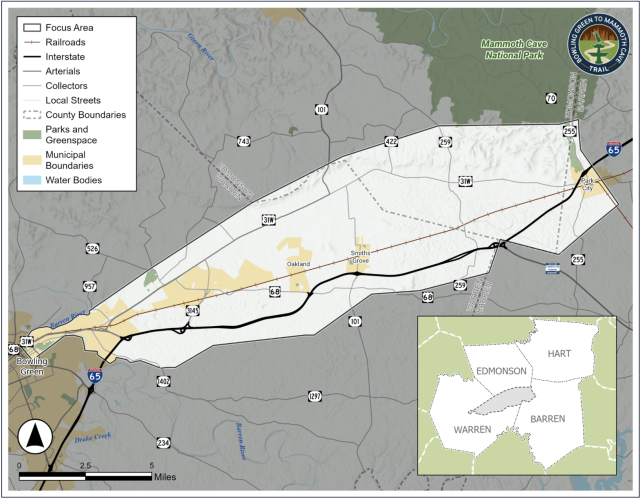Milliken named to criminal justice assessment council
Published 8:20 am Wednesday, June 22, 2016
As Kentucky remains in the clutches of a drug dependency epidemic and taxpayers continue to foot the bill for the growing prison population, Gov. Matt Bevin announced Tuesday a 23-member bipartisan Criminal Justice Policy Assessment Council that includes Warren County Attorney Amy Milliken.
The goal of the council, Bevin said in a news release, is to “carefully study and then suggest actionable policy solutions for improving our criminal justice system.”
As a county attorney whose role is to advise fiscal court and prosecute misdemeanor crime, Milliken understands the needs for both prosecution and fiscal responsibility.
“I hope to bring boots-on-the-ground input,” Milliken said. “As a prosecutor for 20 years, who knows the expense of incarceration because of the dual role I serve as prosecutor and fiscal court adviser, I hope to provide practical input to the council.”
Warren County Commonwealth’s Attorney Chris Cohron, whose office prosecutes felony crimes, said Milliken’s knowledge will be advantageous to the council.
“I think Amy will do a phenomenal job on this council,” he said. “She has a depth of knowledge in not only the county attorney issues but also the prosecutorial issues as a whole.”
Justice and Public Safety Secretary John Tilley will lead the council, and Lt. Gov. Jenean Hampton, also of Bowling Green, will serve as special adviser to the committee and liaison to Bevin.
“While we have made great strides, Kentucky can get smarter on crime while remaining tough on criminals,” Tilley said in a news release. “By using data-driven policy and clear evidence, we can cut re-offense rates, improve reentry, increase drug treatment and treat mental illness – all while maintaining, and even bettering public safety.”
Milliken wants to examine ways to save taxpayer money and at the same time ensure that people who commit crime pay their debts to society.
“I think there is a way to reduce recidivism and incarceration, while at the same time holding individuals accountable.” she said. “Based upon the cost of local incarceration, I think we need to look at every option to determine how best to save the taxpayers money while trying diligently to put these offenders to work and make them productive citizens. I think by doing this it will benefit the people of Warren County. …
“While it is hard to narrow the problems down to one, I think the most pressing need is the drug epidemic. I would love to see Drug Court in District Court. I understand the finances right now but I truly feel having that in District Court would save thousands in local incarceration fees, but it would also save lives and families.”
Cohron would like to see the council delve into crime victims’ rights.
“There are several issues that I hope the council will address,” he said. “First and foremost is we have gotten away from the value of prioritizing victims in our criminal justice system. I hope that will be at the forefront of any discussion. There’s been a great deal of legislation and prioritization in regards to defendants over the last several sessions.
“There are several issues in our criminal justice system where I think victims’ rights have been somewhat left behind. We have a one-size-fits-none penal code currently. It’s troubling that in Kentucky a stolen license plate sticker carries the same penalty and parole eligibility as a fourth offense DUI or possession of child pornography.”
Milliken anticipates that the council will have some discussion about mental health as it relates to the criminal justice system, and Cohron sees a need for consistency in inmate classifications.
“The unique system in Kentucky of having state prisons along with county jails has created an inconsistency in how inmates are classified, specifically so many times people with significant mental health issues are left in the hands of our jails that do not have the resources to deal with those individuals adequately,” Cohron said. “Our current system in regards to individuals who are incompetent to stand trial – there needs to be a long-term system put in place to not only protect that defendant but more importantly the public as a whole.
“I think we do a disservice to our commonwealth by not having long-term supervision and adequate housing for those that have been deemed incompetent to stand trial but still are a danger to others.”
Another important priority Cohron hopes is addressed is the issue of parole eligibility.
“My No. 1 issue would be, we’ve got two types of parole eligibility in the commonwealth of Kentucky. We have those under the Violent Offender Act which carries a mandatory service of 85 percent of their sentence before they are parole eligible, and then we have non-violent offenses which carry 15 or 20 percent parole eligibility depending on the sentence, and unfortunately, there are a very great number of violent, ‘nonviolent offenses,’ ” he said. “For example, attempted murder in the Commonwealth of Kentucky, unless there is serious physical injury, is (considered by state law) a non-violent offense. Manslaughter second degree is a non-violent offense. Victims are staggered sometimes at the parole eligibility that has been designated by the legislature.
“The solution the prosecutors have pushed for for several years is to take these violent ‘non-violent’ offenses and at the very least seek a third set of 50 percent parole eligible offenses.”
The council will bring together a wide range of people from prosecutors such as Milliken to judges, clergy, elected officials and business professionals.
“I believe in the importance of supporting basic human dignity,” Bevin said in a news release. “When we hold individuals fully accountable for their actions while treating them with respect in the process, all of society benefits.”
— Follow Assistant City Editor Deborah Highland on Twitter @BGDNCrimebeat or visit bgdailynews.com.






